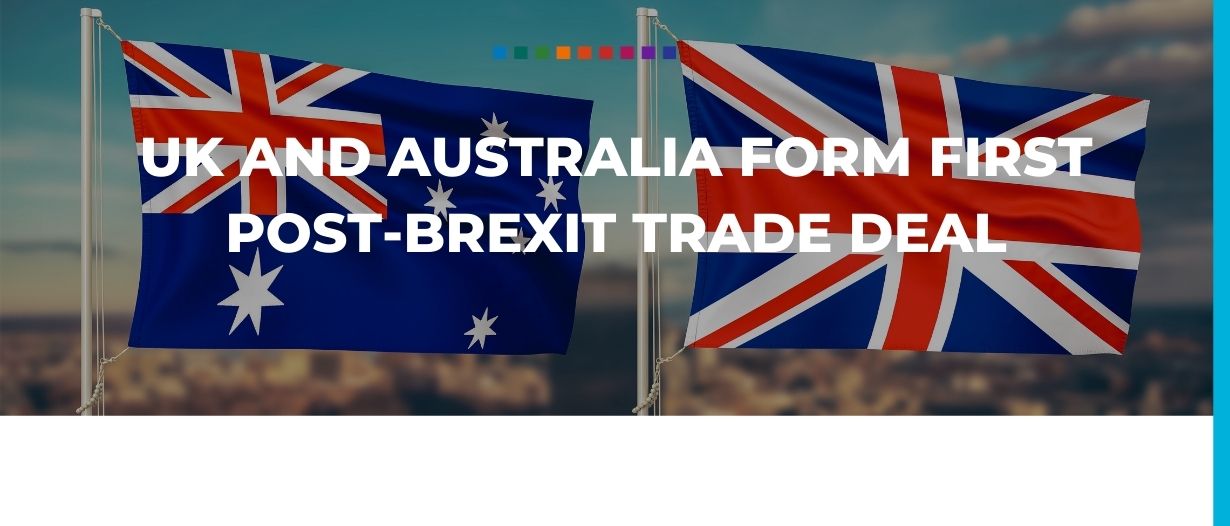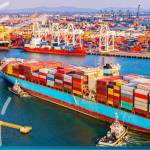“Today marks a new dawn in the UK’s relationship with Australia, underpinned by our shared history and common values”
Prime Minister Boris Johnson
One step forward
The UK and Australia have entered into a momentous trade agreement, the first on the road to the post-Brexit economy. This deal is the first stepping stone on the UK’s journey to joining a wider Asia Pacific trade agreement.
The deal has been said to tremendously benefit national sectors, such as the automotive, whisky, biscuits and ceramics sectors.
The free-trade agreement will provide Australia with free access to the UK food market without any tariffs or limits on trading quantities. Similarly, the UK will be granted access to Australia’s market, as well as, providing British citizens with the opportunity to work and live on the other side of the world with, unprecedented, ease.
The UK-Australia trade agreement comes at a time where Australia is experiencing tension with China, one of its main trading partners. China has, for the past year, imposed tariffs and restrictions on a large number of Australia’s main exports, such as beef, wine, barley and coal, leaving the country in a challenging position.
Reality check
This trade deal, despite having been formally announced recently, has generated debate and controversy. On one hand, the trade is an interesting first post-Brexit deal that will set the tone for all further trade agreements, however, on the other hand, it highlights there will be clear winners and losers in the post-Brexit economy.
The UK government has been heavily criticised for putting its farmers at risk for the gain of other sectors. As Australia’s main UK imports are cars, medicines and alcoholic beverages, these sectors stand to expand and employing over 3.5 million people across the country, the national economy is bound to benefit.
Too good to be true?
This ambitious deal has left some wondering how UK farmers– whose production costs and selling prices are high- are meant to compete with the incoming Australian goods, according to the UK’s National Farmers Union.
National Farmers Union president Minette Batters warned, prior to the completion of the deal of the “slow, withering death of family farms” in the UK if the wrong deal is struck.
The UK Trade and Business Commission is concerned that Australian farming operates on a scale that UK counterparts simply cannot compete with, as Australia possesses eight of the tem largest farms in the worldl.
This concern is addressed by a cap on tariff-free imports for 15 years, however, it may not be sufficient to safeguard the livelihood of this sector.
Environmental and ethical pressures
There are also environmental and ethical implications to this trade agreement. British farmers have raised concerns about lower Australian food standards and animal welfare. The UK, as a member of the EU, had a legal ban on hormone-injected beef, and Australia was, therefore, forced to export only the non-injected variety. Nevertheless, with its departure from the European Union, this legal ban may be lifted allowing Australia to export large quantities of injected beef to the UK.

WWF-UK chief executive Tanya Steele says: “A rushed trade deal with Australia could drive a coach and horses through those efforts (…) and provide a gateway into the UK for foods produced in ways that harm the environment.”
Was the trade deal rushed?
Advantages:
- Increased ease in entering foreign markets
- Removal of the 5% tariffs on Scotch
- Increase the British economy by 0.02%
Disadvantages
- Compromising on food standards
- Repercussions on the farming sector
- Inadequate safeguards to protect the farming sector
Though the true long-term implications of this trade deal may not be seen for months or years, it does set the tone for future negotiations, and with the UK being relatively new at striking trade deals, whilst other countries have more experience, some concern may arise.
As a result of this deal, some countries will want to export their resources to the UK, such as grain and workforce, which may hit certain sectors particularly hard. However, supporters of the trade agreement emphasise that Brexit requires new, bold and innovative ways to craft free trade agreements.

































